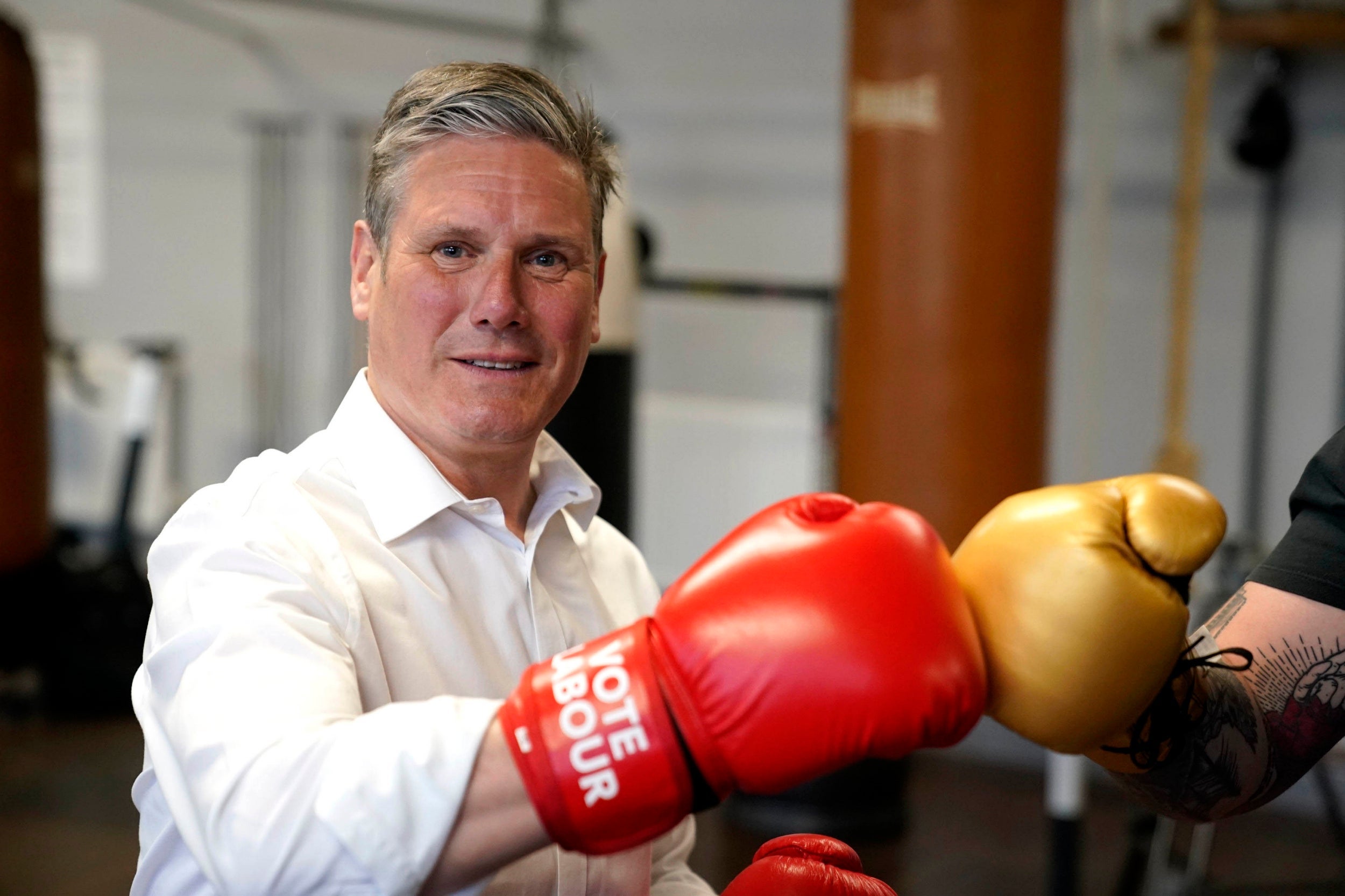Keir Starmer’s campaign on crime is a key part of Labour’s fightback
However, the party leader is unlikely to reap the dividends some of his predecessors did from campaigning on the issue, writes John Rentoul


It is not quite as catchy as “tough on crime and tough on the causes of crime”, but Keir Starmer’s pledge “to drive down crime, tackle its root causes and ensure that criminals are brought to justice” will be an important part of the period between now and the next election.
The Labour leader wrote those words for The Independent, as part of the launch of his “campaign for safer communities”, which was supposed to happen in real life in Wolverhampton. Instead, Starmer is isolating because one of his children tested positive for coronavirus yesterday, and so the launch will be online after all.
But the significance of the campaign is that it shows Labour is getting serious about something that voters care about, and will care about when the Covid-19 pandemic has receded. Crime is an iceberg subject. It is always there; people always worry about it; but politicians don’t talk about it as often as they would if they accurately reflected public opinion. So this is a chance for Starmer to show that he understands public concerns.
Of course, crime is not going to work as well for him as it did for Tony Blair in 1993, and it might not even work as well as it did for Jeremy Corbyn in 2017. By the mid-1990s, crime had tripled under the Conservatives – as measured by the objective Crime Survey, rather than by police statistics for which the methodology kept changing.
Blair’s tough message struck a two-note chord, chiming with acute public anxiety while at the same time announcing that the Labour Party had come in from the sociological fringe of making excuses for criminals. The irony was that Michael Howard, the home secretary Blair shadowed, responded to that anxiety too. His slogan, “prison works”, attracted as much ridicule as Blair’s did praise, but his policies either worked or coincided with a turning point that was happening anyway, and crime has been falling ever since.
The reality of crime has changed, therefore. But it still worries people, and Corbyn was able to exploit the cuts in police numbers made by Theresa May as home secretary and for which she had no defence as prime minister.
The power of the issue in the 2017 election was demonstrated by what Boris Johnson did when he became prime minister. One of his first appearances – the one where he said he would “die in a ditch” rather than stay in the EU after October 2019 – was in front of a line-up of police cadets. It was an American-style photo-opportunity and broke all sorts of guidelines about politicising the police, but showed how seriously he took the subject. His manifesto for the 2019 election (held after he failed to die in the ditch) repeated his promise to recruit 20,000 more police. Since then he has boasted fitfully about the progress being made towards that target.
Which means Starmer is not going to reap the dividends of either of his predecessors from campaigning on crime. Crime is lower than it was in the 1990s, and has been particularly low over the past 18 months of the pandemic. That means Labour has had to adjust to new kinds of crime, with Nick Thomas-Symonds, the shadow home secretary, recently attacking the government for losing control of online fraud, which has been one of the growth industries during lockdown.
But also, Starmer is up against a prime minister who is more sensitive to public opinion than his predecessor and who has taken steps to barricade the government’s law-and-order flank.
Nevertheless, crime is one area where things can only go wrong for governments. The freeze on police pay – quietly announced by Priti Patel, the home secretary, yesterday under cover of the announcement of a 3 per cent rise for NHS staff – will make recruitment harder and it will be interesting to see whether the new No 10 Delivery Unit can ensure the government is on track to recruit the 20,000 officers promised.
Crime is also an essential bridge for the Labour Party to the Conservative-supporting press. It was notable that when Starmer accused Johnson of being “soft on crime, soft on the causes of crime” earlier this month it was in the pages of the Daily Mail.
So far, Starmer’s campaign has been a carnival of cliches. But there were two lines in his Independent article that stood out. One was: “I spent five years as this country’s chief prosecutor. I know what it takes to get criminals off the streets and get victims the justice they deserve.” His record as director of public prosecutions gives him more credibility on the subject than a prime minister who was a mere columnist.
The other line that I thought was interesting was: “We’d bring in new laws to crack down on dangerous driving and high-powered cars.” That is a specific and vivid example of the kind of antisocial behaviour that bothers people.
If Starmer could do more of that and less of the waffle such as “communities up and down our country continue to be blighted by crime after years of Conservative cuts”, he could make inroads on Johnson’s temporary popularity – and might even force him to try to die in a ditch in front of a line-up of police cadets again.
Join our commenting forum
Join thought-provoking conversations, follow other Independent readers and see their replies
Comments